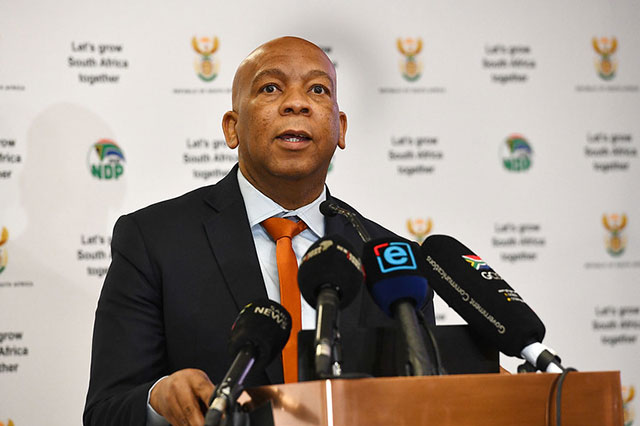Cape Town – Minister of Electricity Kgosientsho Ramokgopa says at least half of the tasks outlined in the Energy Action Plan (EAP) have been successfully executed or are progressing as planned.
Ramokgopa said this on Sunday as he provided an update on the EAP, introduced by President Cyril Ramaphosa to address energy challenges in the country.
“About 56% of the work we are doing is either completed or on track. About eight of these actions that the President has set out in the Energy Action Plan we have completed. Twenty of these actions are on track so essentially what that means is that we are in keeping with the timelines that we had set for ourselves.
“Twelve of these actions are delayed but progressing well. Of course that is a dent because what we want to is to be either ahead of time or on time. Eight of those are off-track and intervention is on the way…so we are missing our own targets that we set ourselves,” the minister said.
Some of the key accomplishments include sourcing additional capacity from neighbouring countries, reducing breakdowns at Eskom power stations, and increasing private investment in generation capacity.
[WATCH] “56% of the work we are doing is either completed or on track. Eight of these actions are off-track so we are missing our own targets that we set ourselves.” -Minister Kgosientsho Ramokgopa while giving an update on the implementation of the Energy Action Plan pic.twitter.com/gOlF7p2AJJ
— Newzroom Afrika (@Newzroom405) August 6, 2023
Ramokgopa said that the government is also procuring renewable energy through Independent Power Producers, with numerous projects in progress.
He emphasised the need for public involvement in reducing energy demand by adopting energy-efficient behaviours, such as turning off non-essential appliances and lights when not in use.
“Demand management is the fastest and most efficient way to reduce demand particularly during peak hours. There are a few things that we can do and the aggregate of those things is going to lessen the intensity of the demand. It’s quicker because we don’t have to spend money, we don’t have to have new generation capacity [and] we don’t have to improve the energy availability factor.
“It has to do with our own behaviours and how we treat consumption in our own homes. It does not mean we need to deteriorate our quality of life. We can achieve both. Just by switching off lights [you are not using], you are switching on the South African economy.
“By reducing the amount of electricity that we use through simple actions, we can reduce load shedding while saving on energy bills,” he said.
Follow African Insider on Facebook, Twitter and Instagram
Picture: Twitter/@SAgovnews
For more African news, visit Africaninsider.com
Compiled by Betha Madhomu


